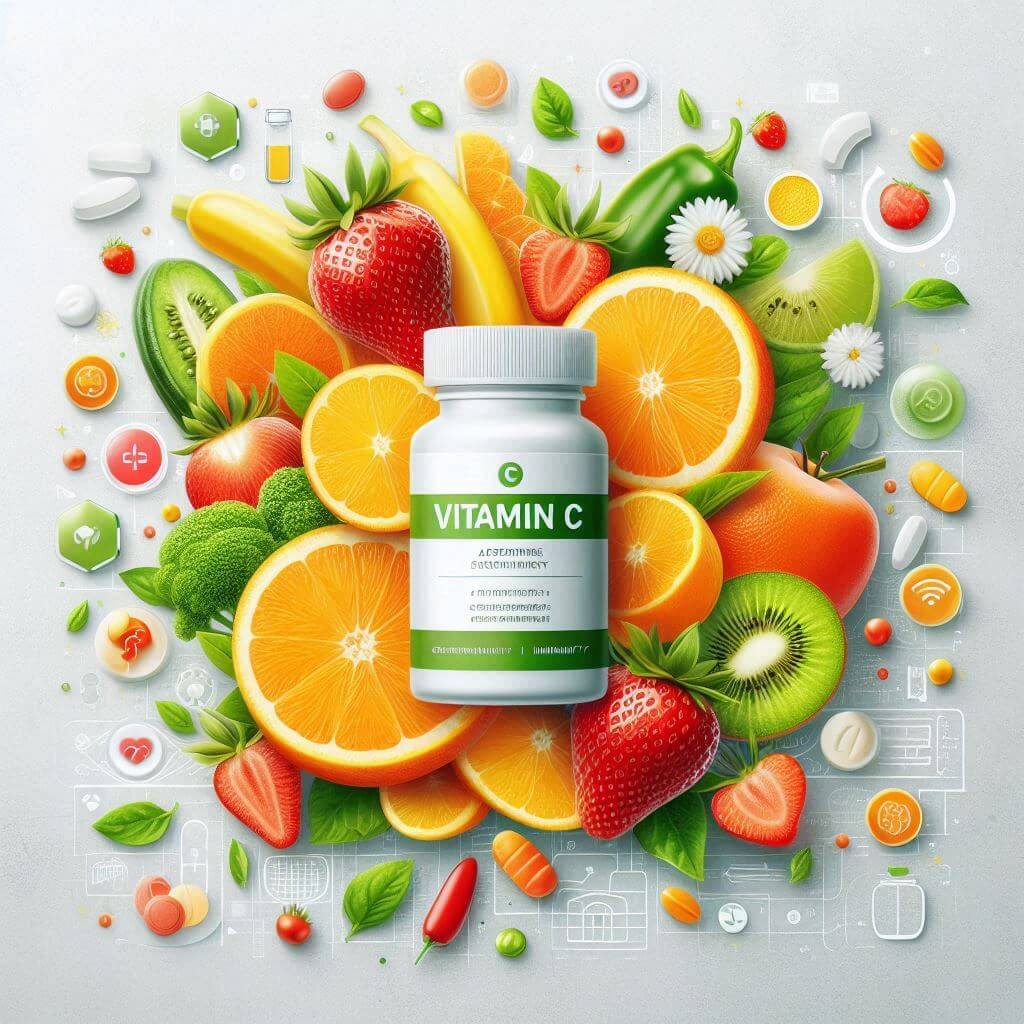As an Amazon Associate ,I earn from qualifying purchase .
Vitamin C, also known as ascorbic acid, is one of the most essential nutrients for human health. It plays a vital role in supporting the immune system, enhancing skin health, and protecting against various chronic diseases. However, like any nutrient, there are both advantages and disadvantages to its consumption. This article provides an in-depth analysis of the benefits and potential risks associated with vitamin C.

Benefits of Vitamin C Tablets for Skin
One of the most highlighted benefits of vitamin C is its positive effect on skin health. Vitamin C acts as a powerful antioxidant, protecting the skin from oxidative stress caused by pollution and UV exposure. Here are some of the key advantages of vitamin C for skin:
- Promotes Collagen Production: Vitamin C is crucial for the synthesis of collagen, a protein that helps maintain skin elasticity and prevents premature aging. Regular intake can help reduce the appearance of wrinkles and fine lines.
- Brightens Skin Tone: Vitamin C inhibits melanin production, which can help lighten dark spots and hyperpigmentation, giving the skin a more even and brighter appearance.
- Reduces Inflammation: Its anti-inflammatory properties help soothe redness and irritation, making it beneficial for those with acne or sensitive skin.
Benefits of Vitamin C tablets for skin are widely recognized in the beauty and dermatology industries. Supplements and topical formulations are popular for their effectiveness in delivering these advantages quickly.

Vitamin C Foods: Natural Sources
While supplements are convenient, getting vitamin C from natural food sources is preferable due to their bioavailability and accompanying nutrients. Here are some rich sources of vitamin C:
- Citrus Fruits: Oranges, lemons, grapefruits, and limes are classic sources.
- Berries: Strawberries, blueberries, and blackberries are packed with vitamin C.
- Vegetables: Bell peppers, broccoli, Brussels sprouts, and kale contain high levels of this nutrient.
- Tropical Fruits: Mangoes, pineapples, and papayas are excellent choices for boosting vitamin C intake.
Incorporating these vitamin C foods into your diet can provide comprehensive health benefits, supporting not just the skin but overall bodily functions.
How Much Vitamin C Per Day for a Woman?
The daily recommended intake for vitamin C varies depending on age and gender. For women, the guidelines suggest:
- General Recommendation: Women aged 19 and older should aim for 75 mg per day.
- During Pregnancy: The recommended dosage increases to 85 mg per day.
- While Breastfeeding: It further rises to 120 mg per day to support both the mother and the baby’s health.
Meeting these recommendations through a balanced diet can help maintain optimal health and avoid deficiencies.
Vitamin C Dosage Per Day: Is More Better?
While vitamin C is water-soluble and excess amounts are excreted in urine, there is a limit to how much the body can safely handle. The vitamin C dosage per day for most adults should not exceed:
- Upper Limit: The tolerable upper intake level is 2,000 mg per day. Consuming amounts above this may lead to gastrointestinal issues such as diarrhea and stomach cramps.

Daily Vitamin C Requirement by Age
To understand the daily vitamin C requirement by age, it is essential to consider different life stages:
- Children (1-3 years): 15 mg/day
- Children (4-8 years): 25 mg/day
- Preteens (9-13 years): 45 mg/day
- Teenagers (14-18 years): 65-75 mg/day, with higher requirements for pregnant and breastfeeding teens.
- Adults: 75 mg/day for women and 90 mg/day for men.
- Smokers: Smokers need an additional 35 mg per day due to increased oxidative stress.
Is It Safe to Take Vitamin C Daily?
For most people, daily consumption of vitamin C within the recommended limits is safe. The question of whether it is safe to take vitamin C daily often arises when considering supplementation. While natural intake through diet poses no risk, high doses of supplements can have downsides:
- Safety Profile: Vitamin C is generally well-tolerated, but high doses (more than 1,000 mg/day) can lead to issues such as kidney stones in susceptible individuals.
- Interactions: Vitamin C can interfere with certain medications, including blood thinners and chemotherapy drugs. Always consult a healthcare provider before starting high-dose vitamin C supplementation.
Advantages of Vitamin C
Health Benefits
- Boosts Immune Function: Vitamin C supports the immune system by encouraging the production of white blood cells and protecting them from oxidative damage.
- Antioxidant Powerhouse: Helps neutralize free radicals, reducing the risk of chronic diseases like heart disease and cancer.
- Aids Iron Absorption: Enhances the absorption of non-heme iron, particularly important for vegetarians and vegans.

Disadvantages of Vitamin C
Despite its numerous benefits, there are some disadvantages of vitamin C when consumed improperly:
- Digestive Distress: High doses can cause nausea, abdominal cramps, and diarrhea.
- Risk of Kidney Stones: Excessive intake may increase the risk of kidney stones in predisposed individuals due to the buildup of oxalate.
- Pro-oxidant Effect: In very high doses, vitamin C can act as a pro-oxidant, potentially causing cell damage instead of preventing it.
Conclusion: The Balanced Approach
Vitamin C is a critical nutrient with significant health advantages, from supporting skin health and enhancing immune function to helping prevent chronic illnesses. However, it is important to consume it in appropriate amounts. The ideal way to meet daily vitamin C requirements is through a balanced diet rich in fruits and vegetables. For those considering supplements, moderation is key, and it’s best to consult a healthcare professional for personalized advice.
In conclusion, understanding the advantages and disadvantages of vitamin C can help individuals make informed choices that promote their well-being while minimizing risks.
Remember: While vitamin C is beneficial, more is not always better. Aim for consistency and balance to reap the most health benefits without adverse effects.







